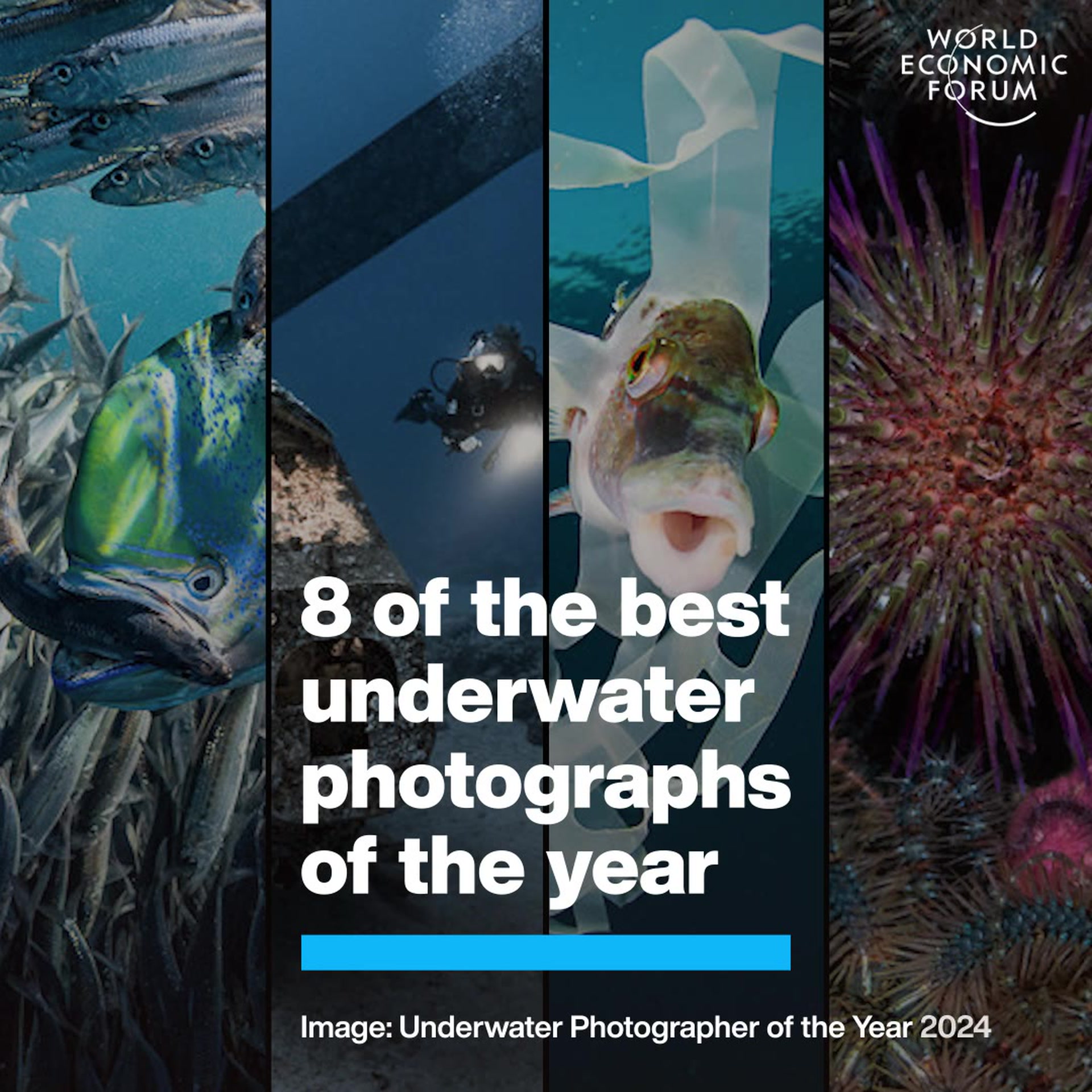Ocean plastic pollution threatens marine extinction says new study

Ocean plastic pollution is set to increase. Image: Naja Bertolt Jensen/Unsplash

Get involved with our crowdsourced digital platform to deliver impact at scale
Stay up to date:
Ocean
Listen to the article
- Ocean plastic pollution is set to grow fourfold by 2050, says a new report.
- And there may be 50 times more microplastics in the sea by 2100.
- Plastic pollution is pushing some species to the brink of extinction.
- But technological innovation and combined global action can help avert disaster.
The level of microplastics in our oceans is set to grow 50 fold by the end of the century raising the risk of widespread extinction of marine life in the most polluted areas, according to a new report.
Analysis for the Worldwide Fund for Nature (WWF) found that an ocean area more than two and a half times the area of Greenland could exceed ecologically dangerous concentrations of microplastics by 2100.
“Plastic pollution is now found everywhere in the ocean, and almost every marine species is likely to have encountered it”, says WWF, adding that a total of 2,141 species have so far been found to encounter plastic pollution in their natural environments.
The report states that some marine environments - including pollution hotspots like the Mediterranean, the East China and Yellow Seas and the Arctic sea ice - have already exceeded a safe level of plastic pollution.
By 2050, the report predicts the total amount of plastic in the oceans will have quadrupled.
Already 88% of marine species studied have been negatively impacted by plastic pollution and it is estimated that up to 90% of seabirds and 52% of sea turtles ingest plastic.
Extinction threat
“For already threatened species, some of which live in such hotspots, such as monk seals or sperm whales in the Mediterranean, plastic pollution is an additional stress factor pushing these populations towards extinction”, says WWF.
The root systems of Mangroves, which provide coastal protection and act as nurseries for many marine species, suffer among the highest density of plastic pollution in the sea. Plastic is also playing a part in the destruction of coral reefs.
The report’s findings are based on a review of 2,592 studies by scientists at the Alfred Wegener Institute Helmholtz Centre for Polar and Marine Research in Germany, and WWF. They conclude that humans are also at risk from eating seafood polluted with microplastics.
What is the World Economic Forum doing about plastic pollution?
The report says microplastics have been found in mussels and oysters. “Since both are consumed whole by humans, there’s no way of avoiding the plastics they contain”, it adds, noting that four out of 20 brands of canned sardines and sprats tested contained plastic particles.
“Without a doubt, unchecked plastic pollution will undoubtedly become a contributing factor to the ongoing sixth mass extinction leading to widespread ecosystem collapse and transgression of safe planetary boundaries”, said Ghislaine Llewellyn, Deputy Oceans Lead at WWF.
Describing the situation as “a planetary crisis,” WWF says that almost two thirds of all plastic ever produced had already become waste by 2015 and it estimates that 86 million-150 million metric tonnes of plastic have now accumulated in the oceans.
Innovative solutions to tackle plastic pollution
The United Nations Environment Assembly is due to meet in Nairobi, Kenya at the end of February and WWF says pressure is mounting on nations to agree a treaty to reduce the production and use of plastics worldwide.
“We know how to stop plastic pollution and we know the cost of inaction comes at the expense of our ocean ecosystems – there is no excuse for delaying a global treaty on plastic pollution',' said WWF’s Llewellyn.
“The way out of our plastic crisis is for countries to agree to a globally binding treaty that addresses all stages of plastic’s lifecycle and that puts us on a pathway to ending marine plastic pollution by 2030.”
The Global Plastic Action Partnership, convened by the World Economic Forum, says eight million tonnes of plastic waste enters the ocean each year and predicts that, without urgent collective action to stop it, there will be more plastic than fish in the sea by 2050.
Five nations are currently signed up to pilot the Partnership’s national model for accelerating plastic action to reduce the use of plastic. Meanwhile, the Forum’s Uplink innovation crowdsourcing platform is running the Global Plastic Innovation Network Challenge.
Among the innovators is Australia-based gDiapers who say they have invented the world’s first fully compostable disposable nappy and Nigeria’s Waste Bazaar, which uses mobile technology to help developing nations tackle the problem of indiscriminate waste dumping.
In Lebanon, Diwama has developed artificial-intelligence-based image recognition software that identifies different types of waste to allow municipalities to separate and recycle it. Individuals can also use the software on their smartphones to sort waste into the correct bin.
The Forum’s report, The New Plastics Economy, said that without innovations like these around a third of the world’s plastic packaging will never be reused or recycled.
Don't miss any update on this topic
Create a free account and access your personalized content collection with our latest publications and analyses.
License and Republishing
World Economic Forum articles may be republished in accordance with the Creative Commons Attribution-NonCommercial-NoDerivatives 4.0 International Public License, and in accordance with our Terms of Use.
The views expressed in this article are those of the author alone and not the World Economic Forum.
The Agenda Weekly
A weekly update of the most important issues driving the global agenda
You can unsubscribe at any time using the link in our emails. For more details, review our privacy policy.
More on OceanSee all
William Austin
April 17, 2024
Mark John Costello
April 8, 2024
Robin Pomeroy and Linda Lacina
March 28, 2024
Meg Jones
March 14, 2024








